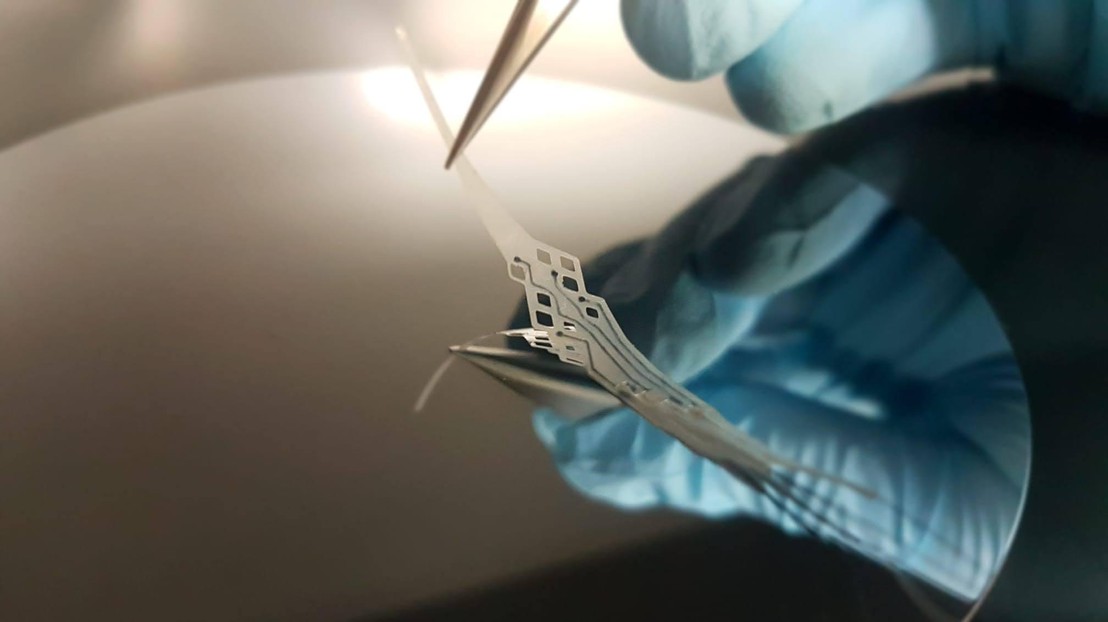Smart Bioreactor for Tissue Growth
Smart Bioreactor for Tissue Growth
Biology
Annu Tom
An intelligent bioreactor system designed for controlled tissue and organoid cultivation using IoT-based monitoring.
The intelligent bioreactor system is an innovative, IoT-based solution for controlled tissue and organoid cultivation. It integrates advanced sensors, automation, and data analytics to provide real-time monitoring and precise control over the cultivation environment. The system consists of a bioreactor chamber, sensor suite, IoT gateway, and cloud-based analytics platform. The bioreactor chamber is designed to mimic the natural environment of cells and tissues, with features such as temperature control, humidity management, and gas exchange. The sensor suite includes a range of sensors to monitor key parameters such as pH, oxygen levels, temperature, and nutrient concentrations. These sensors provide real-time data to the IoT gateway, which transmits the information to the cloud-based analytics platform for processing and analysis.The cloud-based analytics platform uses machine learning algorithms to analyze the data from the sensors and provide insights into the cultivation process. The platform can detect anomalies, predict potential issues, and provide recommendations for adjustments to the cultivation parameters. The system also includes automation features, such as pumps and valves, to control the flow of nutrients and other substances into the bioreactor chamber.The intelligent bioreactor system enables researchers to cultivate tissues and organoids with unprecedented precision and control. The system's real-time monitoring and analytics capabilities allow for the detection of subtle changes in the cultivation environment, enabling researchers to make data-driven decisions and optimize the cultivation process. The system's automation features also reduce the need for manual intervention, minimizing the risk of human error and improving the consistency of the cultivation process.The system's hardware and software components are designed to be modular and scalable, allowing researchers to easily customize the system to meet their specific needs. The system's IoT-based architecture also enables remote monitoring and control, allowing researchers to access the system from anywhere and at any time. This feature is particularly useful for collaborative research projects, where multiple researchers may need to access the system simultaneously.The intelligent bioreactor system has the potential to revolutionize the field of tissue engineering and organoid cultivation, enabling researchers to grow complex tissues and organs in vitro with unprecedented precision and control. The system's advanced monitoring and analytics capabilities, combined with its automation features, make it an ideal solution for a wide range of applications, from basic research to clinical translation.
Personalized medicine: The intelligent bioreactor system can be used to cultivate patient-specific organoids for tailored disease modeling and drug testing, enabling more effective treatment strategies.
Regenerative medicine: The system can be applied to grow functional tissues and organs for transplantation, addressing the shortage of donor organs and improving the success rates of transplantation surgeries.
Toxicology and drug testing: The bioreactor system can be utilized for testing the toxicity of substances on human tissues and organoids, reducing the need for animal testing and improving the safety and efficacy of pharmaceuticals.
Tissue engineering: The system can be used to develop engineered tissues for various applications, such as wound healing, skin grafting, and cartilage repair.
Cancer research: The intelligent bioreactor system can be applied to study cancer development and progression in a controlled environment, enabling researchers to investigate novel therapeutic strategies.
Infectious disease research: The system can be used to study the behavior of infectious agents, such as viruses and bacteria, in a controlled environment, enabling researchers to develop more effective treatments and vaccines.
Stem cell research: The bioreactor system can be utilized to study the behavior of stem cells in a controlled environment, enabling researchers to develop more effective therapies for various diseases.
Point-of-care diagnostics: The system can be used to develop portable, point-of-care diagnostic devices for disease diagnosis and monitoring, enabling healthcare professionals to make more informed treatment decisions.
Space exploration: The intelligent bioreactor system can be applied to study the effects of microgravity on tissue and organoid development, enabling researchers to develop more effective countermeasures for long-duration space missions.
Biomanufacturing: The system can be used to develop scalable, automated bioreactors for the production of biologics, such as vaccines and therapeutic proteins, enabling more efficient and cost-effective production processes.

World Health Organization (WHO)
Audio and visual technology
View Patent